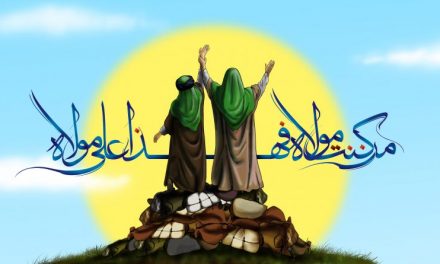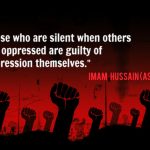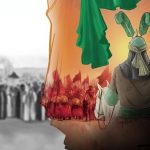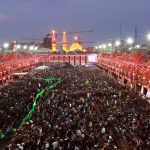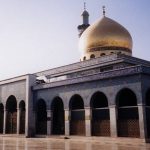
Humbleness
Another key concept in Islamic spirituality is ultimate humbleness or spiritual poverty. This means to strengthen our understanding of the need for Allah and achieve a sense of complete reliance on Him. This means that even saying, “Allah has been very kind to me” or that “Allah has been very generous to me” is not enough. Who are we without Allah’s favor and grace? We are nothing! It is not that Allah has been generous to something independent of Himself. We are nothing else than what He has created. All good things come from Him; in the best scenario we are just recipients, contingent creations of Allah, not independent from Him in any way. One might compare this to humbleness: but it is more important, more intense, and at a higher level. Sometimes people try hard to be humble. For example, if they feel very important because they have been successful, they try to control themselves so that they do not become arrogant; this is a struggle. But if one achieves spiritual poverty there is no need to struggle, as one would feel they had nothing of their own to be proud of except the gifts of Allah (SWT). Reflection on our limits and absolute need for and reliance on Allah leaves no place for any kind of arrogance or self-admiration. Whatever we have, or is at our disposal, belongs to Allah.
We are given things as trust for a short period of time and will be questioned on the Day of Judgment about the way we have dealt with them. Indeed, we ourselves belong to Allah in our very existence. Rene Guenon (1973) writes: The contingent being may be defined as one that is not self-sufficient, not containing in himself the point of his existence; it follows that such a being is nothing by himself and he owns nothing of what goes to make him up. Such is the case of the human being in so far as he is individual, just as it is the case of all manifested beings, in whatever state they may be for, however great the difference may be between the degrees of Universal Existence, it is always as nothing in relation to the Principle. These beings, human or others, are therefore, in all that they are, in a state of complete dependence with regard to the Principle “apart from which there is nothing, absolutely nothing that exists”; it is the consciousness of this dependence that makes what several traditions call “spiritual poverty”. At the same time, for the being who has acquired this consciousness, it has, as its immediate consequence, detachment with regard to all manifested things, for the being knows from then on that these things, like himself, are nothing, and that they have no importance whatsoever compared with the absolute Reality.
Imam Husayn (AS) prays to Allah: What can I bring when I want to come to you?…Can I come with my ears, my eyes, my tongue, my hands, my feet? Is not this the case that all of these are your blessings that you have given me? Elsewhere Imam Husayn (AS) says: O My Lord! I am poor in my richness so how can I not be poor in my poverty?
Whatever I have is a sign of my need, a sign of my dependence. What about that which I do not have? Suppose that there is a person who has taken a loan, say, of one million dollars from a bank and another person who has taken one hundred thousand dollars. Which one is richer, and which one is not? It seems obvious that the one who has taken more money is more indebted and more responsible and must have more concerns and worries. Whatever Allah gives us puts us more in debt. There are many many things that we do not have and even those things that we have do not belong to us so how can we feel proud and free from needs. Imam Husayn (AS) says: With respect to my knowledge, I am ignorant. How can I not be very ignorant in respect to what I do not know? What we know is very limited and surrounded with lots of questions. The more we know, the more questions we will have. This is why those who are more knowledgeable are more careful and cautious in their claims and farther from arrogance. Also, over time, we can easily lose what we know. There are people who cannot even remember their own names or the names of their closest relatives. Imam Husayn (AS) also says: O Allah! Verily the alteration of your affairs and the speed of progress of your decrees prevent those servants of You who know You to be confident when faced with your favour or to feel despaired when challenged with calamities.
Everything changes quickly in this world. Sometimes we are happy and sometimes sad. Sometimes people respect us and sometimes no one respects us. Sometimes our children are good to us and sometimes not. There are lots of ups and downs. What is the reason for this? We need to learn that we cannot trust anything except Allah. No one knows what will happen and, therefore, we should not trust anything. As the sayings of Imam Husayn (AS) shown above teach us, we should not trust anything or anyone other than Allah and at the same time, we should not despair. We should not be hopeless or feel helpless when bad things happen. The key is in the hands of Allah and He can change our situation to betterment in any moment. Having said all this, Imam Husayn (AS) says: I appeal to You with my poverty and need for You. Moreover, how can I appeal to You with something which is impossible to reach You? Or how should I mention my complaint to You while it is not hidden to You? O my Allah! How can I not be poor when You have put me amongst the poor? And how can I be poor when you have made me rich with your generosity?
This shows that the means (wasilah) that the Imam uses to get closer to Allah is his dependence on Allah and his deep understanding that he is poor and nothing before Allah. Thus, the valuable means that Imam Husayn (AS) finds and wants to use is ‘poverty’. According to the Qur’an, we are all needy. The Qur’an says: O mankind! You are the ones who stand in need of Allah, and Allah—He is the All-sufficient, the All-laudable. We are all needy and it is only Allah who is rich and free of need. Many people do not understand this. Imam Husayn (AS) declares that he understands and admits this and wants to use it as a means to get nearer to Allah. Then the Imam (AS) describes that when he wants to come with his poverty there is a problem, in that poverty does not reach Allah. This is to emphasize that poverty is only from one side; poverty cannot reach Allah. This may also mean that the one who goes with poverty will meet Allah whilst he is rich. To become rich you must take poverty with you, but the people who feel that they are the poorest people are the richest people in the eyes of Allah.
Whoever is the most humble, Allah will raise him more than anyone else. As we find in a hadith, ‘whoever tries to be humble for Allah’s sake, Allah will elevate him. In a divine saying (Hadith Qudsi) we find that Allah told Moses (PBUH) the reason why He made him a Prophet is that He looked into the hearts of all people and saw that Moses was the most humble one. According to a well-known hadith, the person who avoids arrogance and chooses to be humble before Allah and serves Him sincerely is no longer a slave of others or of his own whims. He will achieve some kind of lordship: The servitude to Allah is a substance whose essence (core) is the lordship. In another hadith, we read: My servant, obey Me. [If you do so] I will make you an example of Myself. I am alive and never die so I make you alive and never die. I am rich and never become poor so I make you become rich and never poor. Whatever I want it will be, so I make you in the way that whatever you want it will be there.
Source: al-shia.org


